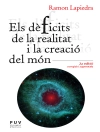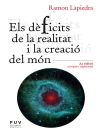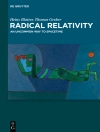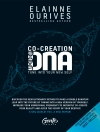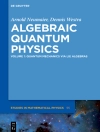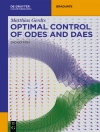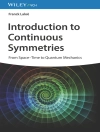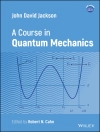Provides detailed solutions to all 47 problems in the seminal textbook Quantum Mechanics, Volume II
With its counter-intuitive premises and its radical variations from classical mechanics or electrodynamics, quantum mechanics is among the most important and challenging components of a modern physics education. Students tackling quantum mechanics curricula generally practice by working through increasingly difficult problem sets that demand both a theoretical grounding and a solid understanding of mathematical technique.
Solution Manual to Accompany Volume II of Quantum Mechanics by Cohen-Tannoudji, Diu and Laloë is designed to help you grasp the fundamentals of quantum mechanics by doing. This essential set of solutions provides explicit explanations of every step, focusing on the physical theory and formal mathematics needed to solve problems with varying degrees of difficulty.
- Contains in-depth explanations of problems concerning quantum mechanics postulates, mathematical tools, approximation methods, and more
- Covers topics including perturbation theory, addition of angular momenta, electron spin, systems of identical particles, time-dependent problems, and quantum scattering theory
- Guides readers on transferring the solution approaches to comparable problems in quantum mechanics
- Includes numerous figures that demonstrate key steps and clarify key concepts
Solution Manual to Accompany Volume II of Quantum Mechanics by Cohen-Tannoudji, Diu and Laloë is a must-have for students in physics, chemistry, or the materials sciences wanting to master these challenging problems, as well as for instructors looking for pedagogical approaches to the subject.
Зміст
8 Solutions to the Exercises of Chapter VIII (Complement CVIII, § 3). An Elementary Approach to the Quantum Theory of Scattering by a Potential 1
8.1 Scattering of the p Wave by a Hard Sphere 1
8.2 “Square Spherical Well”: Bound States and Scattering Resonances 6
9 Solutions to the Exercises of Chapter IX (Complement BIX). Electron Spin 21
9.1 Spin-Related Measurements of a Particle of Spin 1/2 21
9.2 An Operator Coupling Momentum P and Spin S 26
9.3 The Pauli Hamiltonian 29
9.4 Polarization of a Neutron Beam by Reflection 31
10 Solutions to the Exercises of Chapter X (Complement GX). Addition of Angular Momenta 43
10.1 The Deuterium Atom 43
10.2 The Hydrogen Atom 45
10.3 Two-Particle System 49
10.4 Disintegration of a Particle 52
10.5 Three-Particle System 56
10.6 Two-Particle System and Collision 59
10.7 Standard Components of a Vector Operator 71
10.8 Irreducible Tensor Operators; Wigner–Eckart Theorem 79
10.9 Irreducible Tensor Operators (Follow-up Exercise) 90
10.10 Addition of Three Angular Momenta 95
References 103
11 Solutions to the Exercises of Chapter XI (Complement HXI). Stationary Perturbation Theory 105
11.1 Punctual Perturbation in an Infinite One-Dimensional Well 105
11.2 Localized Perturbation in an Infinite Two-Dimensional Well 110
11.3 Perturbations in a Two-Dimensional Harmonic Oscillator 114
11.4 Perturbed Circular Motion of a Quantum System 127
11.5 Three-Dimensional Perturbation 136
11.6 One Electronic and Two Nuclear Spins, Spin-Spin Interactions 143
11.7 Interaction Between a Nuclear Spin and an Electric Field via its Electric Quadrupole and Magnetic Dipole Moments 152
11.8 Linear Perturbation Within an Infinite One-Dimensional Well and Variational Method 163
11.9 The Hydrogen Atom and the Variational Method 171
11.10 Determination of the Energies of a Particle in an Infinite One-Dimensional Well Using the Variational Method 173
12 Solutions to the Exercises of Chapter XII. An Application of Perturbation Theory: The Fine and Hyperfine Structure of Hydrogen 183
13 Solutions to the Exercises of Chapter XIII. Approximation Methods for Time-Dependent Problems 185
Part I: Solutions to the Exercises of Complement BXIII .Linear and Nonlinear Responses of a Two-Level System Subjected to a Sinusoidal Perturbation 185
13.1 Competition Between Pumping and Relaxation in a Two-Level System 185
13.2 Nonlinear Response of a Two-Level System Subjected to a Sinusoidal Perturbation 189
Part II: Solutions to the Exercises of Complement FXIII 198
13.1 One-Dimensional Harmonic Oscillator Subjected to an Electric Field Pulse 198
13.2 Spin–Spin Interactions During a Collision 205
13.3 Two-Photon Transitions Between Non-equidistant Levels 211
13.4 Magnetic Response of a System Placed in an Oscillating Magnetic Field 216
13.5 The Autler–Townes Effect 220
13.6 Elastic Scattering by a Particle in a Bound State. Form Factor 229
13.7 A Simple Model of the Photoelectric Effect 234
13.8 Disorientation of an Atomic Level due to Collisions with Noble Gas Atoms 239
13.9 Transition Probability per Unit Time Under the Effect of a Random Perturbation. Simple Relaxation Model 245
13.10 Absorption of Radiation by a Many-Particle System Forming a Bound State. The Doppler Effect. Recoil Energy. The Mössbauer Effect 252
References 270
14 Solutions to the Exercises of Chapter XIV (Complement DXIV). Systems of Identical Particles 271
14.1 Energy Levels of a System of Three Identical Particles 271
14.2 Two Identical Bosons in a Central Potential 275
14.3 Identical Electrons in Hybrid Atomic Orbitals 278
14.4 Collision Between Two Identical Particles 282
14.5 Collision Between Two Identical Unpolarized Particles 289
14.6 Possible Values of the Relative Angular Momentum of Two Identical Particles 292
14.7 Position Probability Densities for a System of Two Identical Particles 302
14.8 Symmetrization and Measurements 311
14.9 One- and Two-Particle Density Functions in an Electron Gas at Absolute Zero 321
Bibliography 339
Про автора
Guillaume Merle, Ph D, is Professor of Engineering Science, Engineering Thermodynamics, and Quantum Physics at Beihang Sino-French Engineer School, Beihang University, Beijing, China.
Oliver J. Harper, Ph D, is Professor of Physics at Lycée Saint Lambert, Paris, France, where he teaches Physics and Chemistry courses in the Preparatory Classes for the French “Grandes Écoles.”



